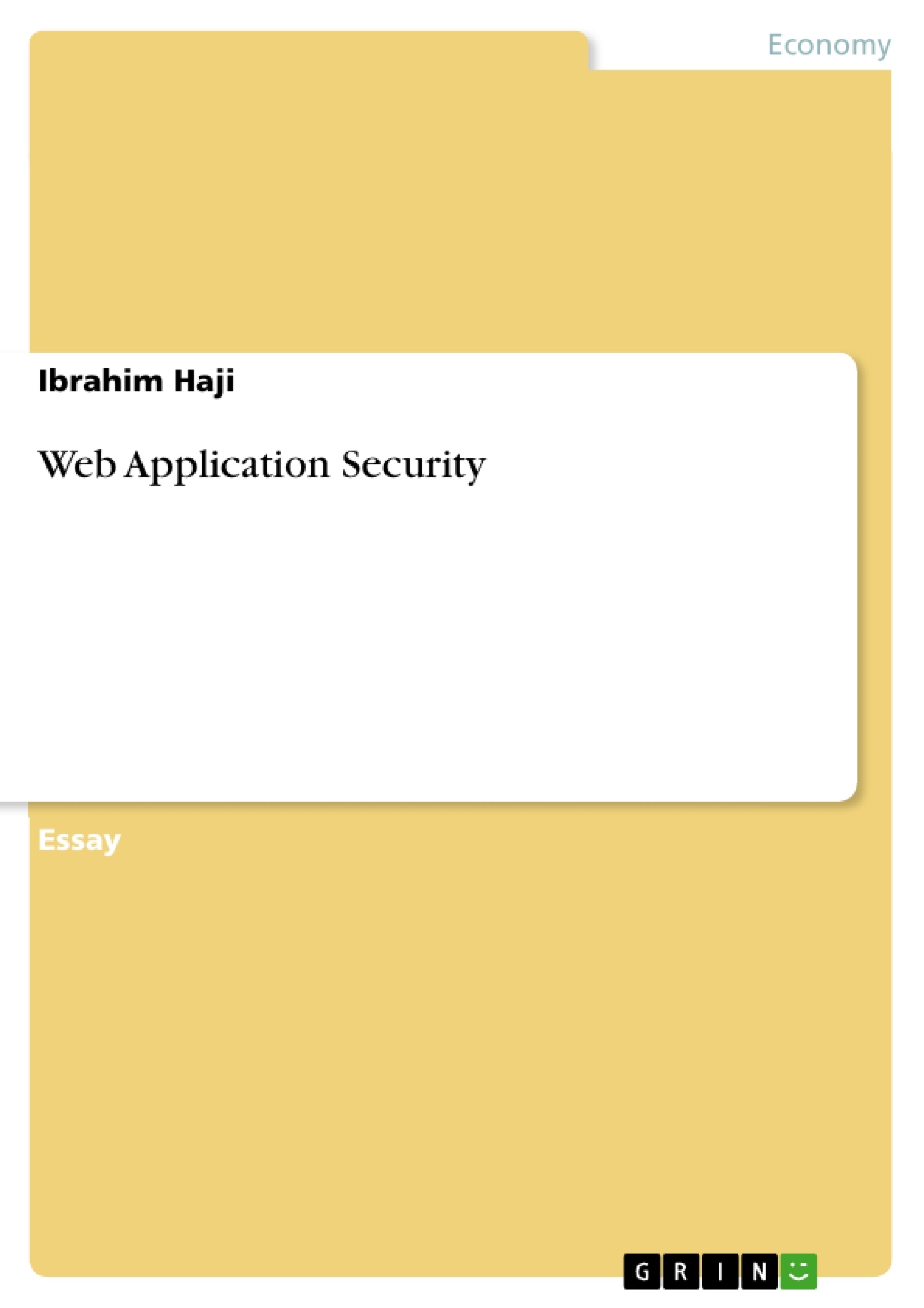As the world continues to enjoy the reliability of web-based applications, security of such applications is becoming an increasingly vital concern. Currently, virtually all sectors are implementing some form of internet-based programs. The World Wide Web has significantly led to desirable expansion in business, healthcare, government and social services (Lee, Shieh & Tygar, 2005, p.184). However, the number of internet attacks has equally increased in the recent past. Hackers have become more adept in writing malicious codes to counter the conventional software codes developed by software vendors. The emergence of various types of vulnerabilities and generation of malicious codes on the internet platform has affected service provision in many sectors. The healthcare field is a particularly sensitive area where privacy and confidentiality of information are immensely important. Storage, transmission and implementation of health-related data and information are some of the processes which require secure online platforms. As such, it is very important to provide security in web applications used in the health sector. This paper explores the impacts of web application security in e-health.
Provision of integral healthcare in the modern medical profession has taken a new direction with regards to storage of clinical data and patients’ records (Chryssanthou & Apostolakis & Varlamis, 2010, p.3). In order to achieve a shared healthcare paradigm, implementation of web-based applications has become inevitable. Electronic health records (EHRs) have become a common buzzword in healthcare issues and facilities. The advent of EHRs has reliably replaced paperwork in medical informatics (Chryssanthou & Apostolakis & Varlamis, 2010, p.3). The EHR can be designed as an online-hosted platform in which medical information, patients’ health records and clinical data are stored. Security policies and programs must be integrated during the structuring of the EHRs, due to a number of reasons which are related to availability, confidentiality, privacy and authenticity of data and information. Security in e-health services requires safe transmission of data to and from the EHRs (Chryssanthou & Apostolakis & Varlamis, 2010, p.3).
Table of Contents
- Web Application Security
- Introduction
- Impacts of Web Applications Security on Healthcare Issues and Facilities
- Web Application Security in e-Health
- Regulatory Compliance
- Financial Transactions
- URL Mapping
Objectives and Key Themes
This paper examines the impact of web application security on electronic health records (EHRs) and healthcare facilities. It highlights the importance of secure web applications for the provision of safe and efficient healthcare services.- The importance of web application security in the healthcare sector
- The impact of web application security on data availability, confidentiality, privacy, and authenticity
- The role of web application security in promoting accountability and compliance with regulatory standards
- The use of various security mechanisms, including firewalls, VPNs, IPS, and encryption
- The specific challenges and considerations for securing healthcare data and systems
Chapter Summaries
- Introduction: This chapter establishes the context for web application security in healthcare, highlighting the growing reliance on internet-based programs and the increasing threat of cyberattacks. It emphasizes the importance of securing web applications in the healthcare sector, particularly due to the sensitive nature of health data.
- Impacts of Web Applications Security on Healthcare Issues and Facilities: This chapter explores the specific impacts of web application security on various aspects of healthcare, including data availability, privacy, confidentiality, and authenticity. It discusses how security measures can enhance remote access to medical resources, improve patient-physician relationships, and promote responsible use of health data.
- Web Application Security in e-Health: This chapter examines the role of web application security in achieving regulatory compliance, securing financial transactions, and implementing URL mapping. It outlines various security measures that are crucial for safeguarding healthcare systems and ensuring compliance with industry standards.
Keywords
This paper explores the key themes of web application security, electronic health records (EHRs), data privacy, confidentiality, authenticity, accountability, regulatory compliance, and financial transactions in the healthcare sector. It emphasizes the importance of security measures such as firewalls, VPNs, IPS, and encryption for safeguarding sensitive medical information and promoting reliable healthcare service delivery.Frequently Asked Questions
Why is web application security critical in healthcare?
Healthcare data is highly sensitive. Security is vital to ensure patient privacy, confidentiality, and the authenticity of medical records, especially as the sector moves toward online platforms.
What are Electronic Health Records (EHRs)?
EHRs are digital versions of patients' paper charts. They are real-time, patient-centered records that make information available instantly and securely to authorized users.
How do cyberattacks affect e-health services?
Hackers use malicious codes to target vulnerabilities in web applications, which can lead to data breaches, loss of patient confidentiality, and disruption of medical services.
What security mechanisms are commonly used for EHRs?
Common mechanisms include firewalls, Virtual Private Networks (VPNs), Intrusion Prevention Systems (IPS), and advanced encryption for data transmission.
What is regulatory compliance in the context of e-health?
It refers to adhering to laws and standards that govern the protection of health information, ensuring that healthcare providers meet specific security and privacy requirements.
- Quote paper
- Ibrahim Haji (Author), 2011, Web Application Security, Munich, GRIN Verlag, https://www.grin.com/document/280528



